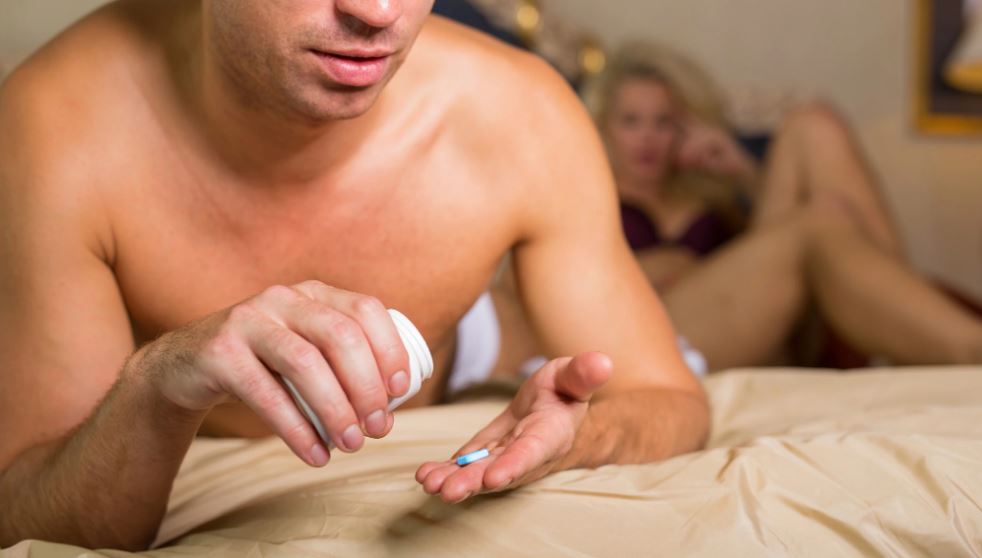Due to the increase in average life expectancy, there is a tendency to increase the incidence of malignant neoplasms all over the world. According to statistics, prostate cancer ranks second in the structure of oncological pathology in men, second only to lung tumors. The source of information is an article on how to become a healthy man. In this article, we’ll discuss about the life after Prostate Removal in Men.
Life after prostate removal in men
A distinctive feature of prostate neoplasia in individuals under forty years of age is rapid growth and metastasis, therefore, immediate radical prostatectomy is the only correct method of treatment. But it’s not just about saving the patient’s life. Today we will talk about the consequences of prostate resection in men, rehabilitation and the revival of sexual function. Gentlemen may also need to restore potency after removal of the prostate adenoma, although in this condition, not the entire organ is resected, but only the part protruding into the urethra.
What happens to an erection after prostate removal?
Let’s try to clarify how prostate and erection are related. The work of the male gland is controlled by a whole set of hormones – pituitary, steroid, as well as androgens and estrogens. The functions of the prostate gland include:
- Secretion of the liquid component of the sperm.
- Overlap of the opening of the urethra at the time of sexual intercourse.
It is regulated by reflex and psychogenic mechanisms: nerve impulses stimulate the expansion and relaxation of the tone of the arteries, and as a result – increased blood flow to the penis.
Around the prostate gland there are nerve bundles that control the onset of erection. Thus, a decrease in sexual desire and a violation of potency after removal of the prostate are not associated with the absence of this organ, but with damage to nerve fibers and arteries, which are sometimes cut at the time of surgery.
Is sex possible after prostate removal?
If urologists manage to perform a nerve-sparing operation, problems with potency occur less often. Scientists note that the percentage of impotence after transurethral (through the urethra) resection of the prostate gland ranges from 4 to 40. It is impossible to predict the extent of damage in advance, even when performing surgery by laparoscopic method.
It has been proven that half of the gentlemen with postoperative erectile dysfunction, during the year there is a restoration of potency after removal of the prostate and adenomectomy. It is necessary to warn too “hot” lovers. Urologists in some cases recommend abstaining from sex for at least six weeks after prostatectomy. What determines the success of restoring potency after prostate removal
Let’s try to figure out why some men have potency without a prostate, and others have serious problems with intimate life. Every human body is unique. The course of any prostate disease – prostatitis, adenoma, malignant neoplasm to one degree or another negatively affects erectile function. Restoration of potency after prostatectomy depends on:
- The presence or absence of a violation of potency before surgery.
- The age of the patient.
- The interest of the man himself in conducting an active sexual life.
- The presence of concomitant diseases in the patient.
- The volume of the operation and the type of operational access.
- Experience and competence of the attending physician.
In the vast majority of cases, the problem with potency is present in gentlemen with pathological processes of the prostate even before surgery. The choice of the scope of the operation and its technique depends on the stage and course of the disease, the presence of comorbid diseases. Sometimes, even with the use of a minimally invasive technique, it is not possible to avoid damage to the nerve bundles.
Penile rehabilitation
A set of measures aimed at restoring sexual ability after prostate removal in medicine is commonly referred to by the term – “penile rehabilitation”. You should not get depressed. Urologists note that some men, even with a constant loving and attentive sexual partner, do not allow the thought that they are capable of an erection without a prostate. And they do not attempt to restore their former sexuality.
The consequences of radical prostatectomy can manifest themselves in different ways:
- decreased libido;
- difficulty or acceleration of ejaculation;
- insufficient erection;
- decreased severity of orgasm.
In each specific case, an individual comprehensive approach is required. Sometimes the patient has several complaints at the same time. Statistics show that the overwhelming number of gentlemen who have undergone rehabilitation can have sex after the removal of the prostate gland. It is only important to listen to the advice of your attending physician and make every effort to do this.
Restoration of potency after prostate removal
According to the recommendations of the International Society for Sexual Medicine, various methods of rehabilitation after prostatectomy are used:
- oral drug therapy;
- intracavernous injections;
- introduction of medicinal suppositories into the urethra;
- use of vacuum erection devices;
- a set of physical exercises to strengthen the muscles of the perineum;
- implantation of a penile prosthesis.
Treatment is selected jointly by the doctor and the patient strictly individually. In this case, it is impossible to follow the advice of friends and acquaintances and rely on the feedback of Internet users. A specialist can recommend several methods simultaneously or alternately. It depends on the patient’s condition, the degree of damage to nerve fibers, the severity of fibrous changes.
In the early postoperative period
In the early postoperative period, a catheter is inserted to improve the outflow of urine to a man. This helps prevent narrowing of the urethra. In the vast majority of cases, the patient’s condition requires the appointment of antibiotic therapy, since it is possible to attach an infection and the development of an inflammatory process, which in the future may negatively affect erectile function.
It is necessary to adjust intestinal motility, because dyspeptic phenomena negatively affect the regeneration of tissues in the pelvic organs. It is necessary to clarify with the attending physician the optimal amount of fluid consumed: excess urine entails additional unpleasant sensations, and the lack will cause an excessive concentration of salts in the urine, which is also undesirable in the postoperative period. It will not be superfluous to consult a psychologist, since signs of anxiety-depressive syndrome have been identified in a significant number of gentlemen as consequences of prostate removal.
After discharge from the hospital
Drug therapy is often recommended directly in the hospital, sometimes after discharge from the hospital, but it is always prescribed only by a doctor. Some medications used to improve erection, for example, phosphodiesterase inhibitors of type 5, are incompatible with taking nitrates, and in case of overdose, they can cause ischemic pain behind the sternum. Therefore, it is extremely important to choose the optimal dose for each patient.
Experts note the high efficiency of taking medications, but we can talk about full rehabilitation no earlier than in a few years. According to the conducted studies, three years after radical prostatectomy, erectile dysfunction was observed in 37% of patients taking medications, while among those who refused drug therapy, this percentage was equal to 73%.
The introduction of drugs into the caverns of the penis (intracavernous) has been used relatively recently – since the 80s of the last century. The method has proven its effectiveness. Patients are easily trained in the technique of administration, but this cannot be done without the recommendation of the attending physician. Gentlemen practicing this technique to prevent such serious complications as infection and fibrosis of the cavernous bodies, it is important to remember:
- It is categorically contraindicated to take even low-alcohol drinks on the day of intacavernose administration of drugs.
- Repeated injection is allowed to be done no earlier than two days later.
- Only disposable syringes are used.
The patient enters medicinal substances into the urethra in the form of suppositories or granules independently before sexual intercourse. But they should not be used without the advice of a doctor due to the high risk of complications from the cardiovascular system, the development of bleeding, priapism (painful erection that lasts more than four hours). The introduction of drugs into the urethra may be accompanied by discomfort and soreness, which should be immediately warned by the doctor.
Vacuum-induced erection
Thanks to a simple device, negative pressure is created in the cavernous bodies of the penis, which causes blood flow to it and, as a result, its tension. It can be used immediately before sexual intercourse.
Normally, a healthy man’s penis is at rest, several episodes of nocturnal erections occur during the night, which is not observed after undergoing radical prostatectomy. At the moment of filling with blood in the penis:
- oxygen partial stress increases;
- oxygen enrichment of cavernous bodies increases;
- substances preventing the development of cavernous tissue fibrosis are synthesized.
 ODosta Inc. Create Your Own Tech World
ODosta Inc. Create Your Own Tech World









